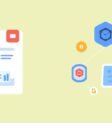
AI agents for time tracking and task management are rapidly reshaping how individuals and teams organize, monitor, and optimize their daily workflows. By leveraging artificial intelligence, these agents automate mundane processes, deliver actionable insights, and help users achieve higher productivity. In the following sections, we’ll explore how these intelligent systems work, their core advantages, cutting-edge trends, industry applications, best practices for adoption, and the path ahead.
What Are AI Agents for Time Tracking and Task Management?
AI agents for time tracking and task management are intelligent software programs that leverage machine learning to monitor and optimize how work gets done. Unlike static lists or manual time sheets, AI-driven solutions capture data passively by integrating with tools like calendars, email, and project management apps. These agents learn work patterns, flag inefficiencies, and automate routine actions. As a result, they evolve from simple record-keeping systems to proactive digital assistants capable of suggesting priorities, helping users set realistic deadlines, and promoting work-life balance.
For a deeper dive into how to implement custom AI solutions, check out our guide to setting up custom AI agents with TheAgentBot.
Key Benefits of AI-Powered Time Tracking and Task Management Tools
The integration of AI in productivity tools unlocks a range of benefits. Automation of repetitive tasks—such as logging hours, updating statuses, and sending reminders—significantly reduces manual work, allowing you to focus on what matters. AI-driven tracking ensures greater accuracy by automatically capturing work patterns and spotting inconsistencies, making timesheets and project updates more reliable.
Perhaps most importantly, AI agents intelligently prioritize tasks and suggest optimal schedules, predicting and preventing bottlenecks. For larger teams, AI can balance workloads by analyzing performance data and redistributing tasks, optimizing collective output. Ultimately, these advantages translate into streamlined operations, accurate records, and a more engaged, efficient workforce. Discover more about AI’s role in workflow optimization in our Top 10 Features of TheAgentBot.
Emerging Trends and Innovations in AI-Driven Productivity Tools
AI agents for time tracking and task management have evolved beyond simple trackers to become full-fledged digital assistants. Recent innovations include the fusion of generative AI, natural language processing, and advanced machine learning to automate and personalize workflows. AI co-pilots embedded in platforms like Microsoft 365 and Google Workspace now summarize emails, draft documents, and even automate meeting notes.
Other groundbreaking advancements are found in tools such as Notion and ClickUp, where AI can summarize content, suggest tasks, and generate project timelines. Conversational AI lets users interact with their systems naturally, while adaptive learning algorithms tailor recommendations based on ongoing behaviors and project contexts. Privacy and on-device processing have become priorities to address data concerns, signalling a shift from routine automation to true productivity augmentation.
Real-World Applications Across Industries
The impact of AI agents for time tracking and task management is evident in a variety of fields:
- Software Development: Teams log billable hours and assign tasks automatically based on capacity, integrating with code repositories and calendars to generate accurate summaries and streamline client reporting.
- Marketing Agencies: AI agents allocate campaign tasks, monitor progress, and issue reminders, all while dynamically rebalancing team priorities to meet deadlines. For expanded best practices in this sector, consult our AI integrations for marketing guide.
- Freelancers & Consultants: AI-powered trackers automatically log and categorize meetings, prompt follow-ups, and deliver personalized reminders to keep engagements on track.
- Healthcare: Clinic administrators synchronize appointments and documentation tasks among medical staff, tracking compliance and adapting to schedule changes in real time.
Across all these examples, AI agents don’t just automate—they provide actionable analytics that help users adapt, identify workflow bottlenecks, and keep everyone focused on strategic work.
How to Successfully Implement AI Agents in Your Workflow
Adopting AI agents for time tracking and task management starts by identifying tasks ripe for automation, such as scheduling or data analysis. Choose AI tools compatible with your existing software stack, ideally through limited pilot integrations to collect feedback and measure effectiveness. Educate your team on how the AI works and its benefits—proper training sessions and clear documentation are key.
Assign responsibilities for managing and monitoring the AI’s performance, use well-defined success metrics, and schedule regular reviews. Always prioritize data privacy and security, opting for solutions that follow industry best practices. Emphasize open communication, gathering continuous feedback and iteratively optimizing your workflows for maximum benefit. For those new to AI integration, our step-by-step beginner’s guide to TheAgentBot provides practical advice for smooth onboarding.
Privacy, Security, and Ethical Considerations
With increased reliance on AI agents comes greater responsibility around data privacy. These tools handle sensitive information such as personnel details, behavioral insights, and proprietary business metrics. Secure deployment involves measures like robust encryption, user consent frameworks, and strict access controls.
Compliance with standards such as GDPR, HIPAA, or ISO 27001 builds trust, while ongoing security audits and transparent practices ensure sustained safety. Ethical use also means communicating what data is collected and for what purpose, allowing users to correct or limit data sharing where appropriate. Explainable AI and bias-free decision-making remain essential to responsible deployment. For more, see this Harvard Business Review piece on ethical AI.
The Future of AI Agents for Time Tracking and Task Management
AI agents are moving beyond automation toward transformative productivity solutions. One promising direction is autonomous prioritization, where AI analyzes deadlines, dependencies, and goals to automatically reschedule meetings and suggest focus periods—with minimal manual input. Deeper platform integration will unify disparate workflows across calendars, project management, and analytics, enabling a holistic view of productivity and smarter recommendations.
However, expanded capabilities bring additional privacy and ethics considerations. Users will increasingly demand transparency and control over what AI agents access and decide. Expect tomorrow’s task management platforms to evolve from “trackers” to intelligent digital coaches—delivering actionable advice, highlighting engaging insights, and reshaping how work gets done. To see current innovations in this space or learn about productivity breakthroughs, visit our case study on doubling productivity with TheAgentBot.
Conclusion
AI agents for time tracking and task management are changing the way businesses and individuals approach productivity. By automating routine tracking, delivering high-value insights, and respecting ethical standards, these tools unlock efficiency across roles and industries. As technology advances, expect even broader adoption and smarter, more context-aware solutions—empowering users not just to track time and tasks, but to accomplish more with every minute.






